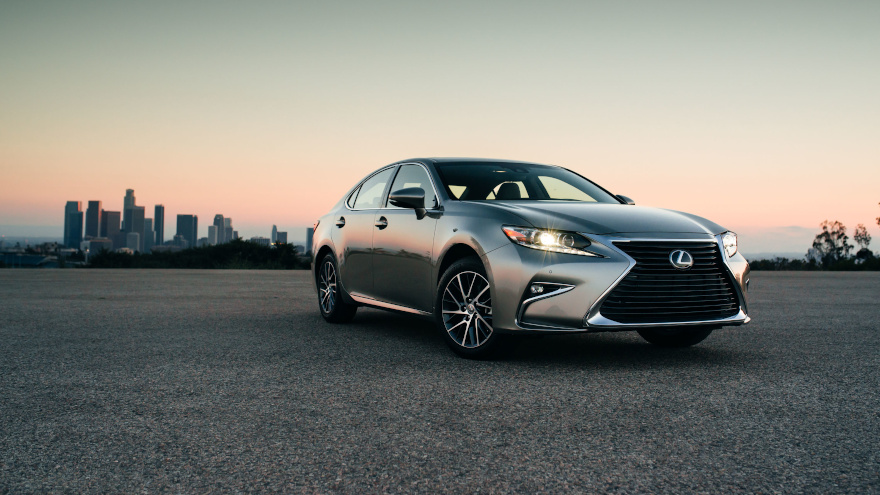These vehicles take a bow in the area of dependability

Pictured is the 2016-2017 Lexus ES 350. Photo courtesy of Lexus.
By subscribing, you agree to receive communications from Auto Remarketing and our partners in accordance with our Privacy Policy. We may share your information with select partners and sponsors who may contact you about their products and services. You may unsubscribe at any time.
TROY, Mich. –
Overall vehicle dependability has improved 1.5% over 2019, according to a new J.D. Power Study.
But according to J.D. Power vice president of global automotive Dave Sargent, that dependability improvement — reported in the recent J.D. Power 2020 U.S. Vehicle Dependability Study — has taken place despite some challenges.
One challenge is the increased adoption of complex vehicle technology.
“There’s no question that three-year-old vehicles today are better built and more dependable than same-age vehicles were in previous years,” Sargent said in a news release.
He continued, “However, the rapid introduction of technology is putting increased pressure on dependability, so it would not be surprising to see problem levels plateau, or even increase, over the next few years.”
The vehicle technology challenge is one of many findings to come out of the study, which measures the number of problems per 100 vehicles, or PP100, experienced during the past 12 months by original owners of their three-year-old vehicles. The 2020 study measures problems in model-year 2017 vehicles.
Subscribe to Auto Remarketing to stay informed and stay ahead.
By subscribing, you agree to receive communications from Auto Remarketing and our partners in accordance with our Privacy Policy. We may share your information with select partners and sponsors who may contact you about their products and services. You may unsubscribe at any time.
One of those findings is that the Lexus ES can take a bow as the most dependable model from the study.
But that model is not just dependable. It’s very dependable. J.D. Power reports that in the study’s 31-year history, the score for the Lexus ES of 52 PP100 is the best ever recorded.
The study also scored the top brands in the dependability area. Genesis took the leading role, with a score of 89 PP100. This year marked the first time the study included Genesis.
Continuing with brand dependability, Lexus ranked second with a score of 100 PP100. That was a 6 PP100 year-over-year improvement.
Buick came in third with 103 PP100, followed by Porsche (104 PP100) and Toyota (113 PP100).
In the area of improvement, Cadillac showed a reduction of 35 PP100 from 2019. Other stars in the area of improvement were Mazda (reduction of 29 PP100), Lincoln (by 28 PP100), Ford (by 20 PP100), Buick (by 15 PP100) and Volkswagen (by 15 PP100).
Toyota Motor Corp. earned six segment awards for the Lexus ES, Lexus GX, Toyota 4Runner, Toyota Avalon, Toyota Sienna and Toyota Tundra. The Toyota brand received the most segment awards in the study.
General Motors Co. earned five segment awards, for the Buick Encore and Buick Regal, and for the Chevrolet Equinox, Chevrolet Silverado HD and Chevrolet Tahoe.
For another top finding from the study, the all-electric sector can also take a bow. The Nissan LEAF is the first all-electric model to receive a segment-level award. This one is for compact car.
Crossovers and SUVs also take the spotlight in the area of dependability. Although crossovers and SUVs still report slightly more problems than cars, the gap is narrowing.
On average, owners of crossovers/SUVs experience 134 PP100. That compares with 127 PP100 by car owners.
That 7 PP100 gap has narrowed a great deal from 2019. J.D. Power says crossovers/SUVs now account for more than 50% of new vehicle sales annually. With that in mind, the company says it is “critical” that automakers achieve the same level of quality and dependability as for cars.
And returning to the topic of in-vehicle technology, it showed the strongest improvement in this year’s study.
Audio/communication/entertainment/navigation is the most improved category (by 2.3 PP100).
However, it still accounts for more problems than any other category in the study.
Which in-vehicle technology areas are causing problems? Voice recognition, Bluetooth connectivity and navigation systems.
“Many owners complain about these systems early in the ownership experience and, three years later, they’re still frustrated with them,” Sargent said.
He continued, “We’re seeing improvement, but automakers still have a long way to go to before they can declare victory in this area.”
The study evaluated problem symptoms in eight vehicle system categories:
— exterior
— features/Controls/Displays
— seats
— interior
— the driving experience
— audio/communication/entertainment/navigation
— HVAC
— engine/transmission
The 2020 U.S. Vehicle Dependability Study, fielded from July through November 2019, is based on responses from 36,555 original owners of 2017 model-year vehicles after three years of ownership.


